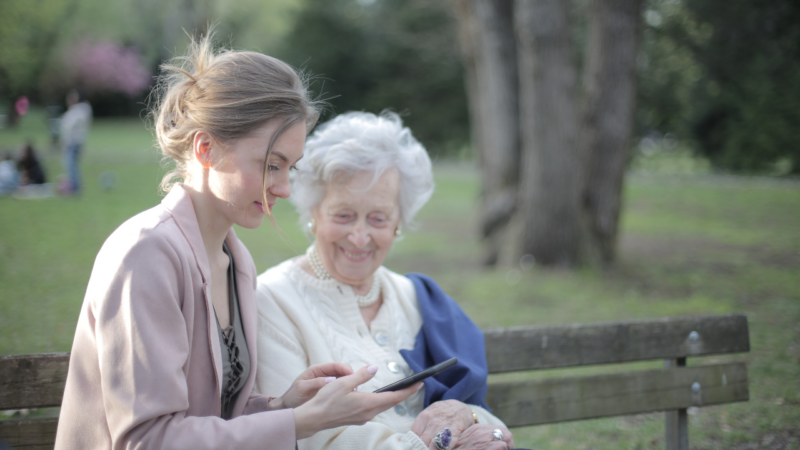We all want to look after our elderly Mum and/or Dad as they age. For many of us, we’re keen to see them living happy and fulfilled lives, living independently in their own homes for as long as possible.
Having a caring physiotherapist in your corner to help Mum or Dad stay mobile and active is often a good move. The question then becomes: When should a physiotherapist get involved?
There are a number of things to look out for when making this decision. Here are the main ones:
A recent fall, or fear of falling
A fall (or close call) can indicate some weakness or balance issues, and even if they didn’t hurt themselves, it’s important to assess the cause.
Physiotherapists are experts in falls prevention, and can develop an individualised plan to help reduce the risk of future occurrences.
The fear of falls is a valid concern that is quite common among older adults and should not be ignored. Helping to build confidence and developing a falls prevention plan are important steps to take for ongoing safety and maintaining independence.
Here is some further reading on the topic of falls
Following a hospital stay
While often necessary, a hospital stay can cause loss of physical fitness alarmingly quickly, especially for an unplanned surgery such as an emergency hip replacement.
While your Mum or Dad won’t be discharged until the hospital is certain they are heading to a safe environment, people often find it very difficult to manage once they return home.

It’s best to keep a close eye during the weeks following return to home, and if they are struggling, it may be worth engaging a physiotherapist to help. Physiotherapy can even be implemented as part of the discharge planning process while still in hospital and is worth considering to ‘hit the ground running’ when returning to wherever they call home.
Have you heard of ‘prehabilitation‘? If the upcoming hospital stay is a planned event, rehabilitation can start before the actual surgery, with careful preparation and exercises designed to minimise recovery time and maximise functional outcomes.
Trouble with physical tasks or maintaining independence
Movement difficulties can take many forms.
For instance, have you noticed your Mum or Dad having trouble getting their arms into a shirt or doing up their buttons? Perhaps they seem unsteady when bending over or need to hold onto something when retrieving an item off the floor, or maybe they have been avoiding getting glasses down from the top shelf of the cupboard or having trouble hanging out the washing on the line.
Although it might seem natural that tasks get harder to do as we age, it doesn’t necessarily mean we need to give these things up. This is especially important for those meaningful activities which bring them joy, such as gardening, walking with friends, or going out for lunch with family.
Physiotherapists are movement experts, who can assess the reasons why these tasks are challenging, and develop a plan to improve or adapt to the difficulties, with the goal of maintaining meaningful independence for as long as possible.
Pain
Being in pain is never fun and can have a seriously negative effect on mood and the ability and motivation to keep moving.

It can come from specific conditions like osteoarthritis or fibromyalgia, or it can be more general such as chronic lower back pain. It’s usually best to keep moving even though it might feel uncomfortable, and physiotherapists can help you do this safely while working around any other medical considerations. They can also help provide some insight into the different types of pain and carry a wide range of pain management tools and strategies.
Read our helpful tips to help lower back pain for seniors.
Preventative Fitness
It doesn’t have to all be doom and gloom; maybe your parents are doing absolutely great and you (and they) want to keep it that way! The old saying “prevention is always better than a cure” certainly holds true in this case.
Physiotherapists can work at any level of physical function, from couch potatoes to marathon runners, and help you work towards whatever your strength, endurance, balance, or flexibility goals may be.
Want to better understand the preventative health benefits for an ageing population? Check out this article.
If you notice your Mum or Dad exhibiting one or more of these aspects, or if something just doesn’t quite feel right, it’s worth having a physiotherapist carry out an assessment so you and your parents can be fully informed of their options.
If you’d like to set up an assessment or discuss further, please call one of our qualified physiotherapists on The Physio Co’s Client Care team on 1300 797 793.
(Article written by TPC physiotherapist, Jarrod Kohlhagen)
***************
REFERENCES:
Prehabilitation Effectiveness for Total Hip Replacement:
Widmer P, Oesch P, Bachmann S. Effect of Prehabilitation in Form of Exercise and/or Education in Patients Undergoing Total Hip Arthroplasty on Postoperative Outcomes-A Systematic Review. Medicina (Kaunas). 2022 May 30;58(6):742. doi: 10.3390/medicina58060742. PMID: 35744005; PMCID: PMC9228426.
https://www.ncbi.nlm.nih.gov/pmc/articles/PMC9228426/



 1300 797 793
1300 797 793